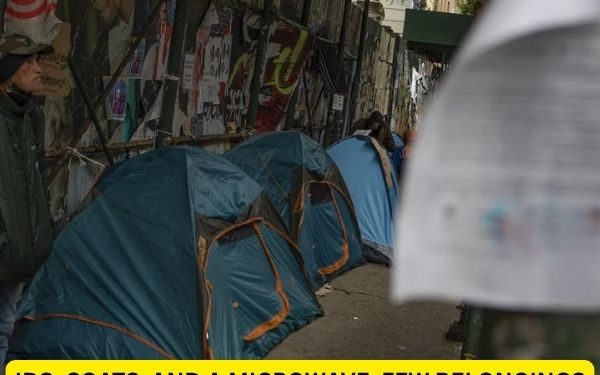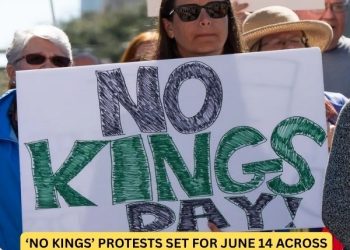A health insurance card, a blue men’s jacket, a microwave, and a 10-speed bike are just a few of the personal items stored by New York City workers this year following homeless encampment sweeps.
Although city policy allows individuals 90 days to reclaim stored belongings, City Hall admitted that from January through May, items were officially vouchered just 13 times — despite likely hundreds of sweeps. In the same timeframe last year, the city averaged about 200 sweeps each month.
“That’s a shocking number that should raise a lot of red flags,” said Dave Giffen, executive director of the Coalition for the Homeless. “There are so many people that the city is sweeping.”
City records obtained via a Freedom of Information Law request list the few possessions that were logged during these sweeps. Advocates say this confirms what they’ve long suspected: most belongings — including IDs, keepsakes, and necessities — are simply thrown away.
The city hasn’t finalized the number of sweeps from January to May 2025 but is required to report that data quarterly. The increase in street homelessness, which hit 4,100 last year, combined with more non-migrant New Yorkers entering the shelter system, makes the impact of these sweeps even more concerning.
City Hall spokesperson William Fowler defended the policy: “In most cases, people choose to take their belongings with them and only leave behind what they do not wish to keep. As Mayor Adams has said, there is no dignity in living on the street and we have a moral obligation to help our fellow New Yorkers.”
Sweeps are coordinated across multiple city departments — sanitation, NYPD, homeless services, and parks — and are supposed to be paired with outreach and shelter options. Still, out of 3,500 people displaced in sweeps over nine months last year, only 114 were placed in shelter.
“They come back and their stuff is gone, their whole life is gone,” said Graciela Razo of VOCAL-NY, who supports unsheltered people at a drop-in center. Many, she said, don’t even know item storage is an option — and neither did she.
City guidelines require the Department of Social Services to explain the sweep, urge people to secure their important documents, and make a “best effort” to voucher eligible property. If no one is present, workers must store clearly identifiable items, like ID cards.
Of the nine vouchers obtained by Gothamist, stored items ranged from a tote bag of Legos to psoriasis cream, hand weights, magnesium vitamins, a laptop, and a phone — along with bags of clothing, medication bottles, and more.
“Even if offered storage, most homeless people would prefer to move with their belongings and keep them,” said Helen Strom of the Safety Net Project. Without a phone or stable contact, retrieving stored items is difficult, she added.
Last October, six homeless New Yorkers joined the Safety Net Project to sue the Adams administration in federal court, claiming the sweeps violated due process and Fourth Amendment protections. A judge has since ordered the city to give seven days’ notice before sweeps and to share a list of affected locations with the plaintiffs.










